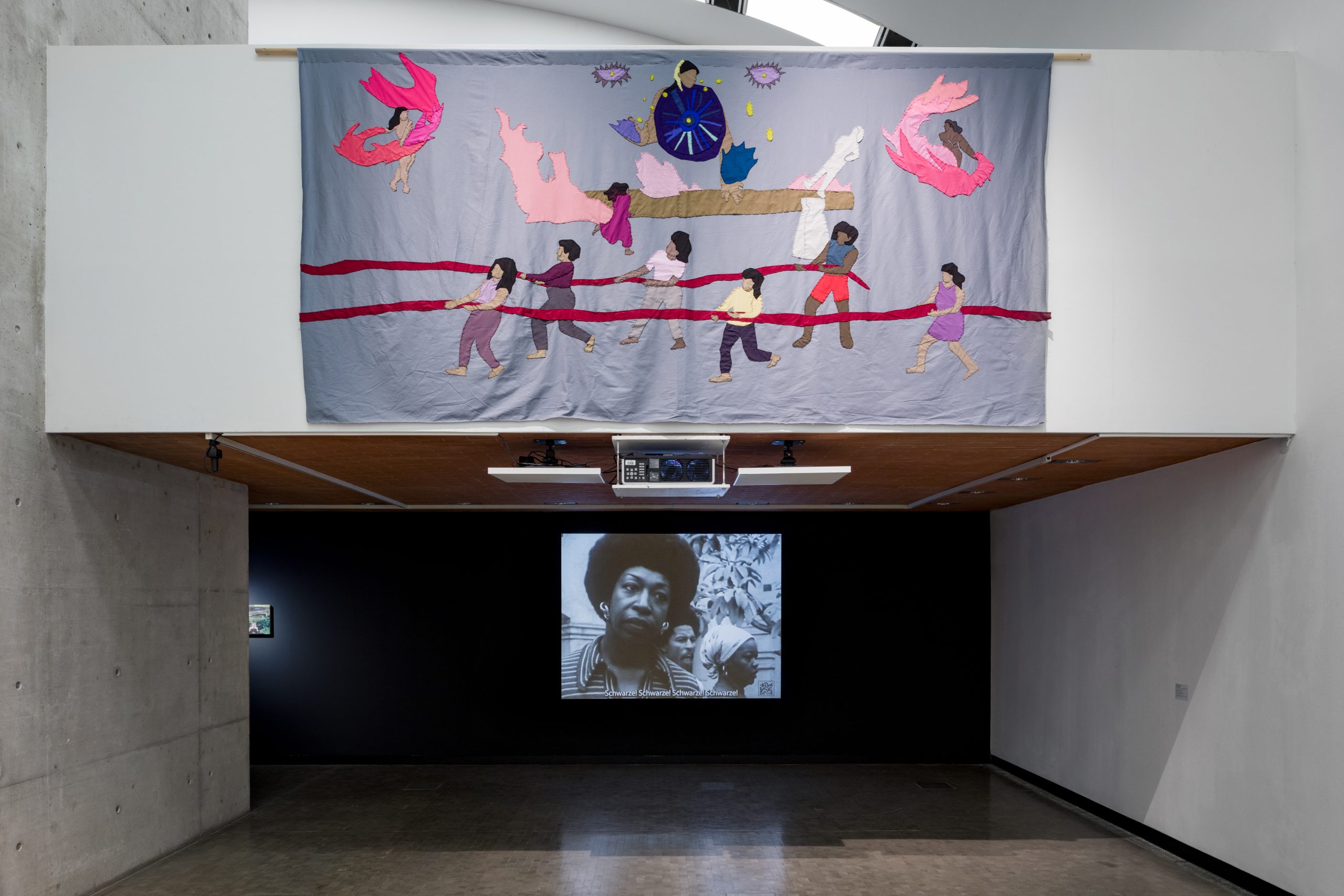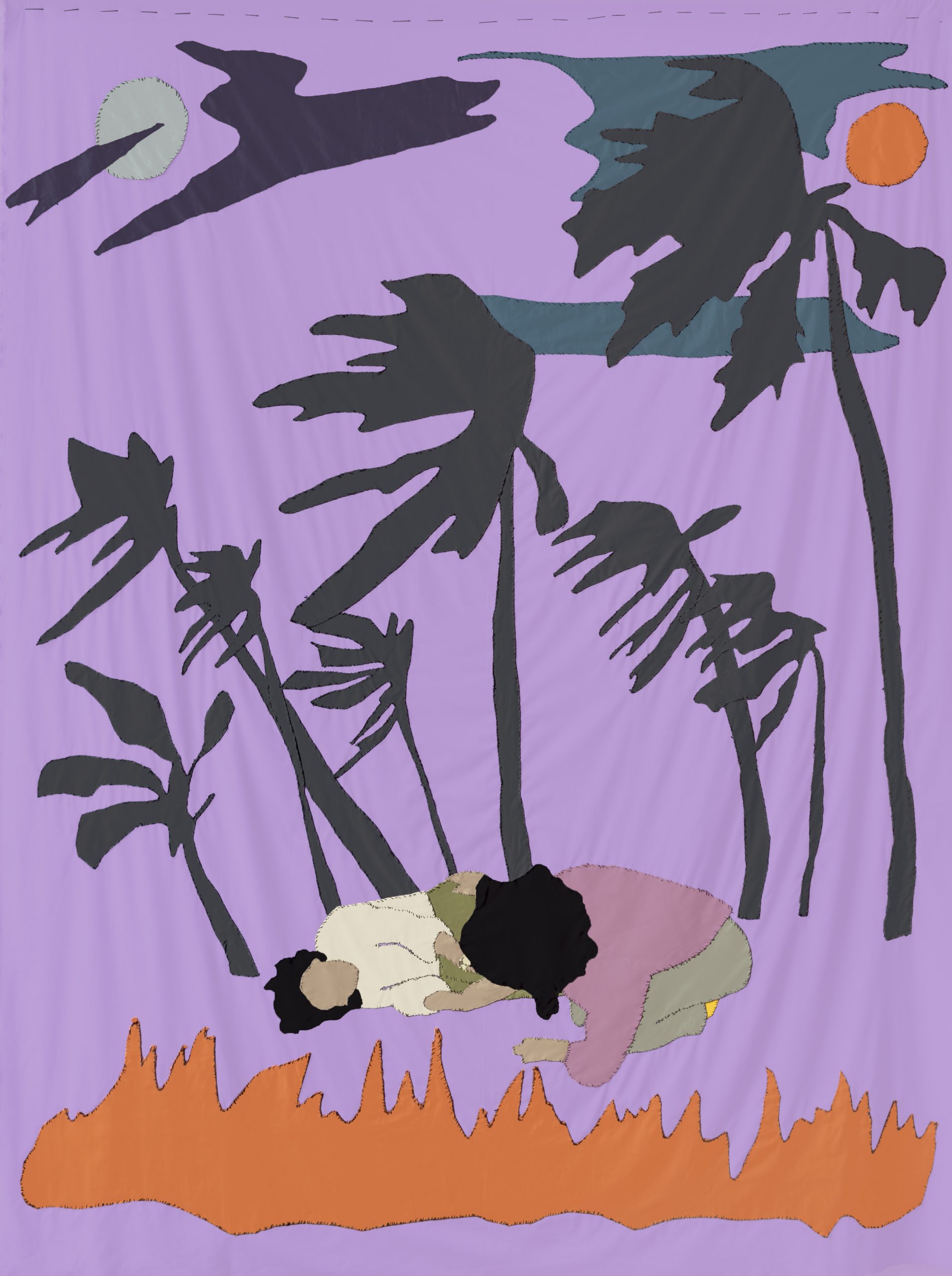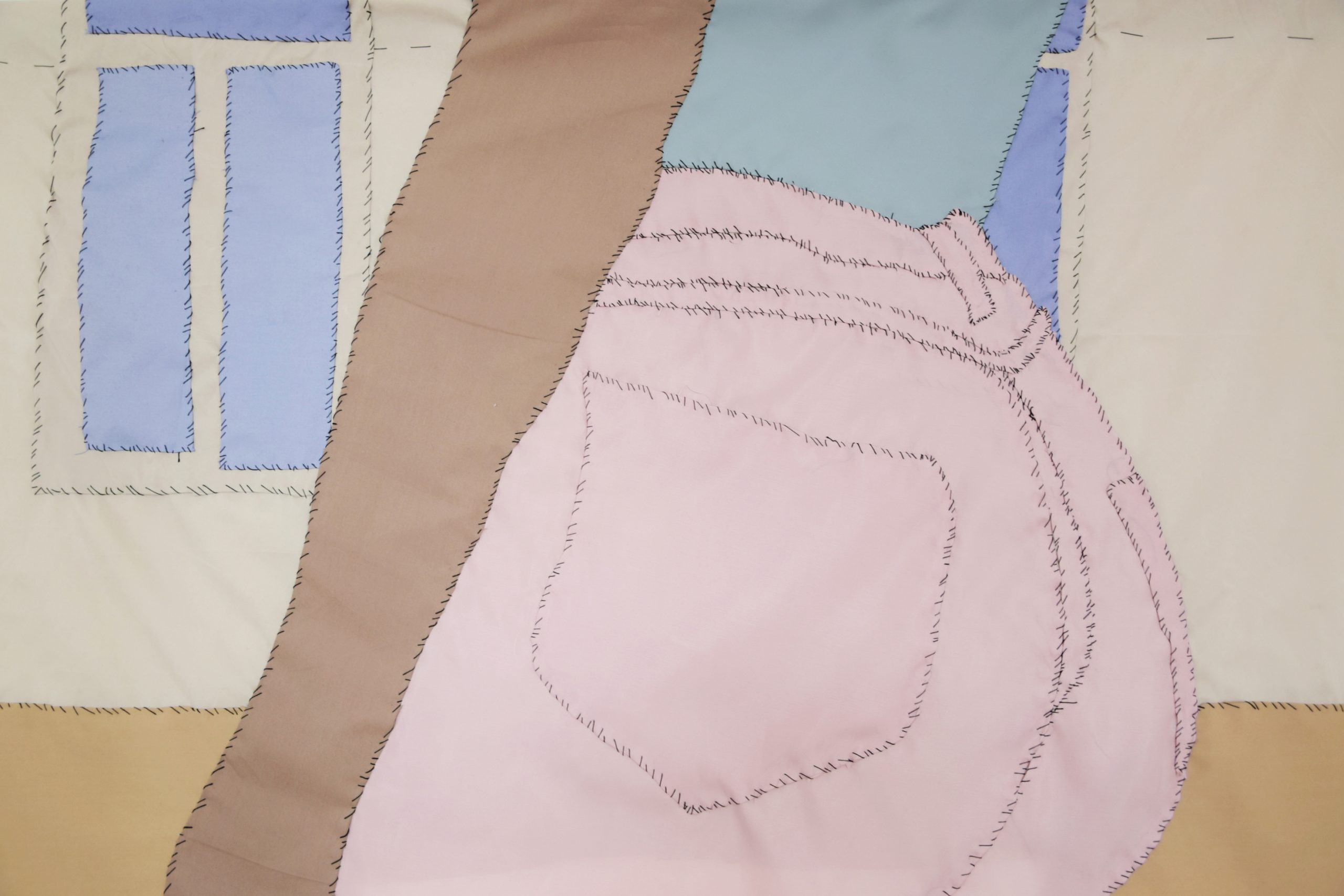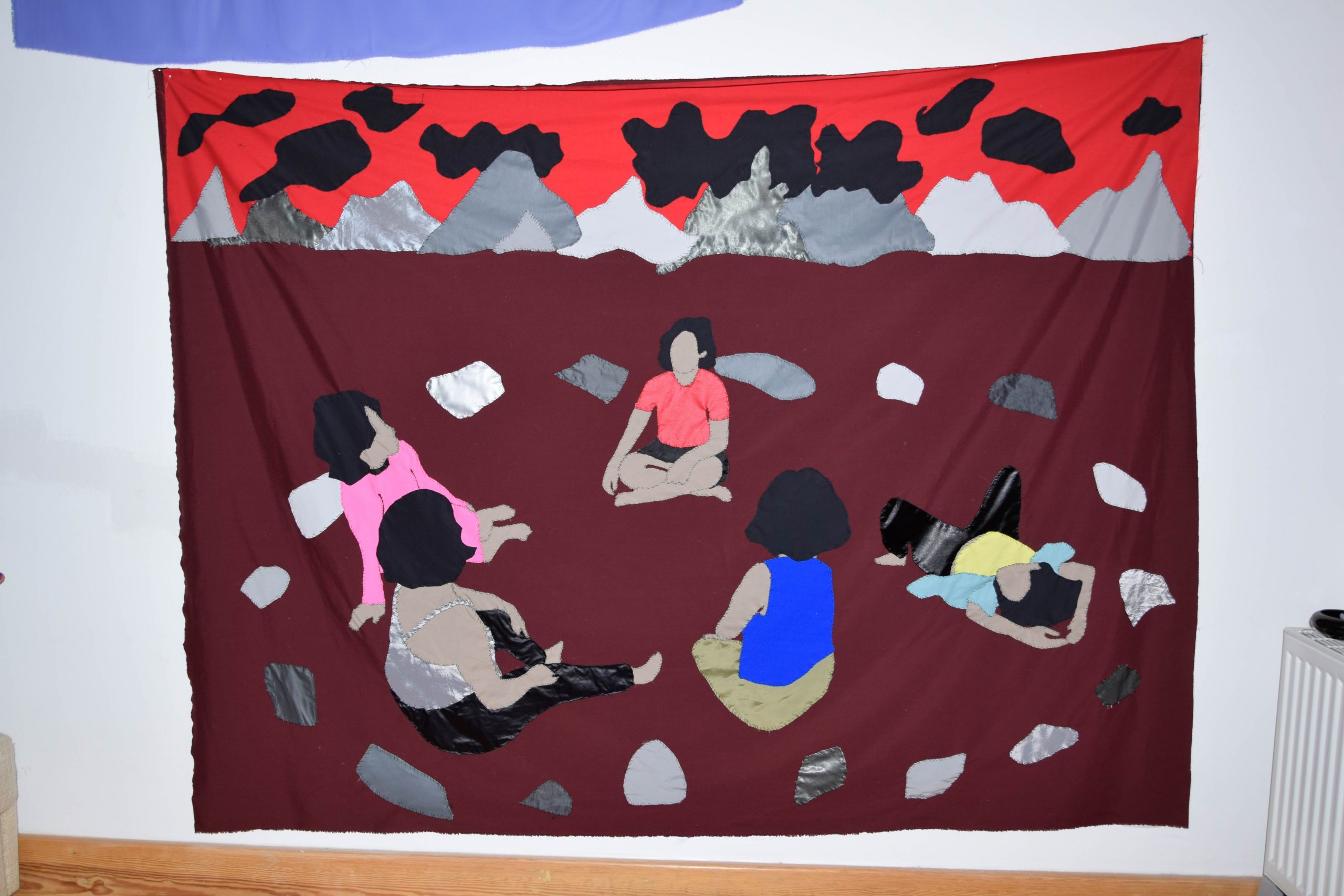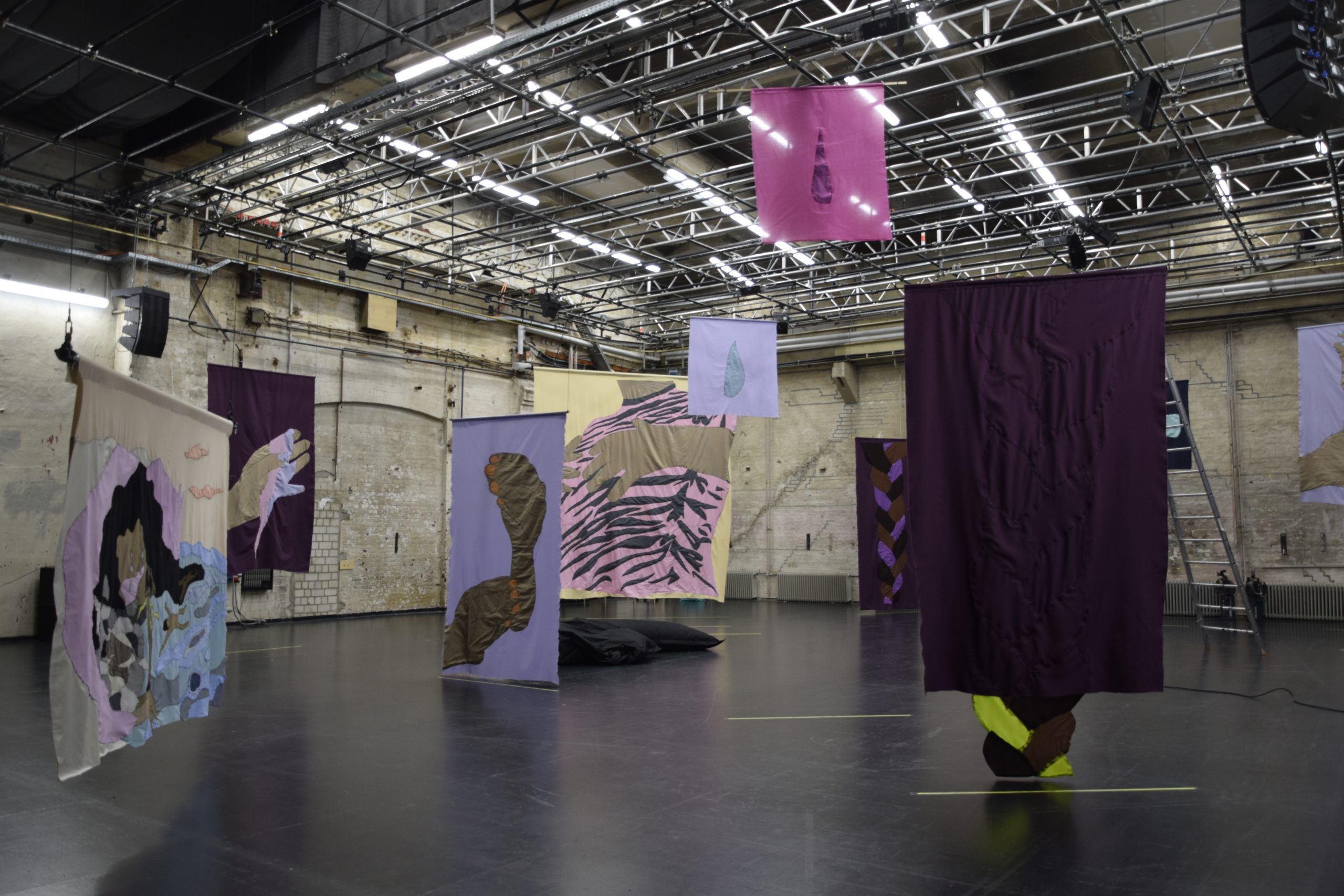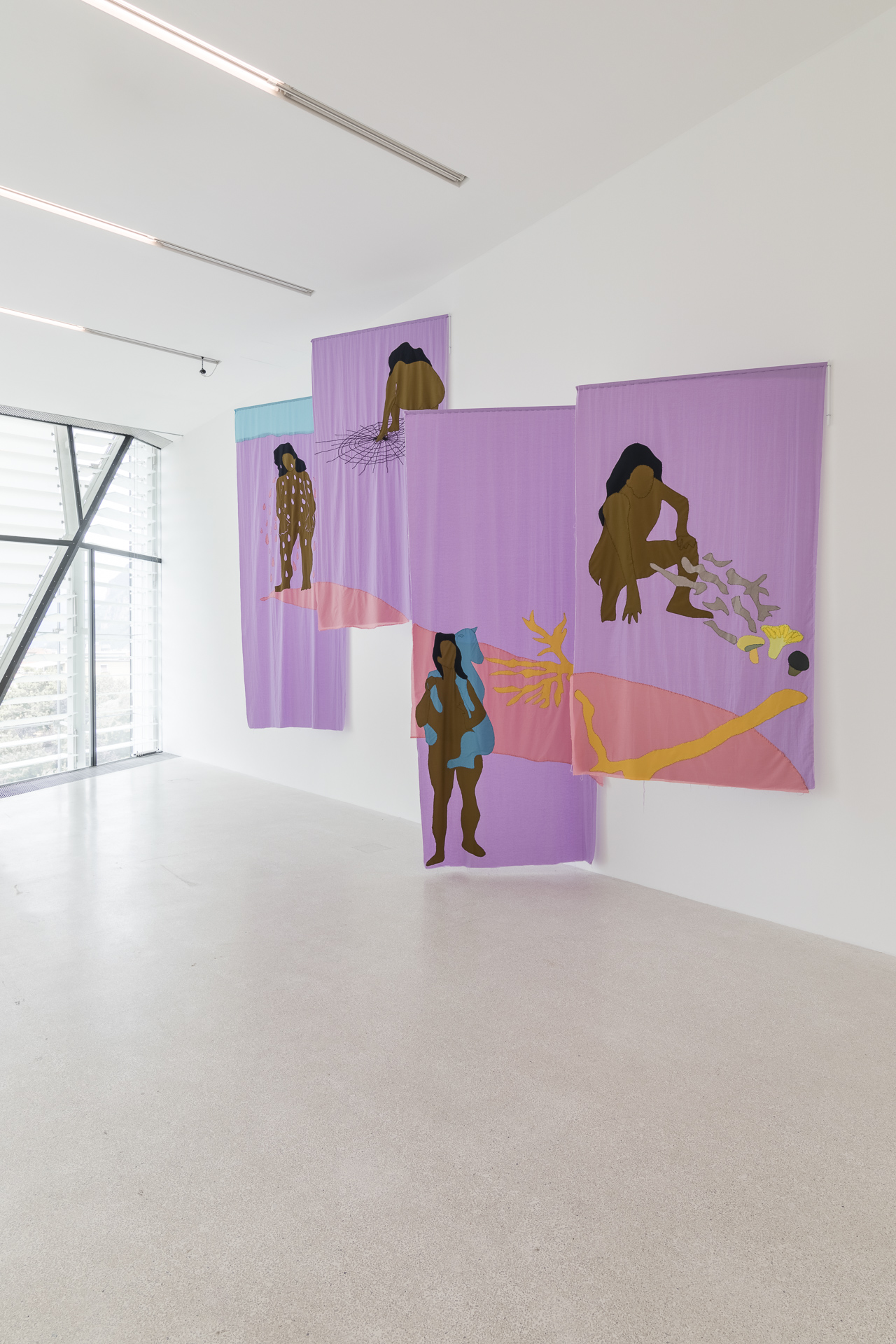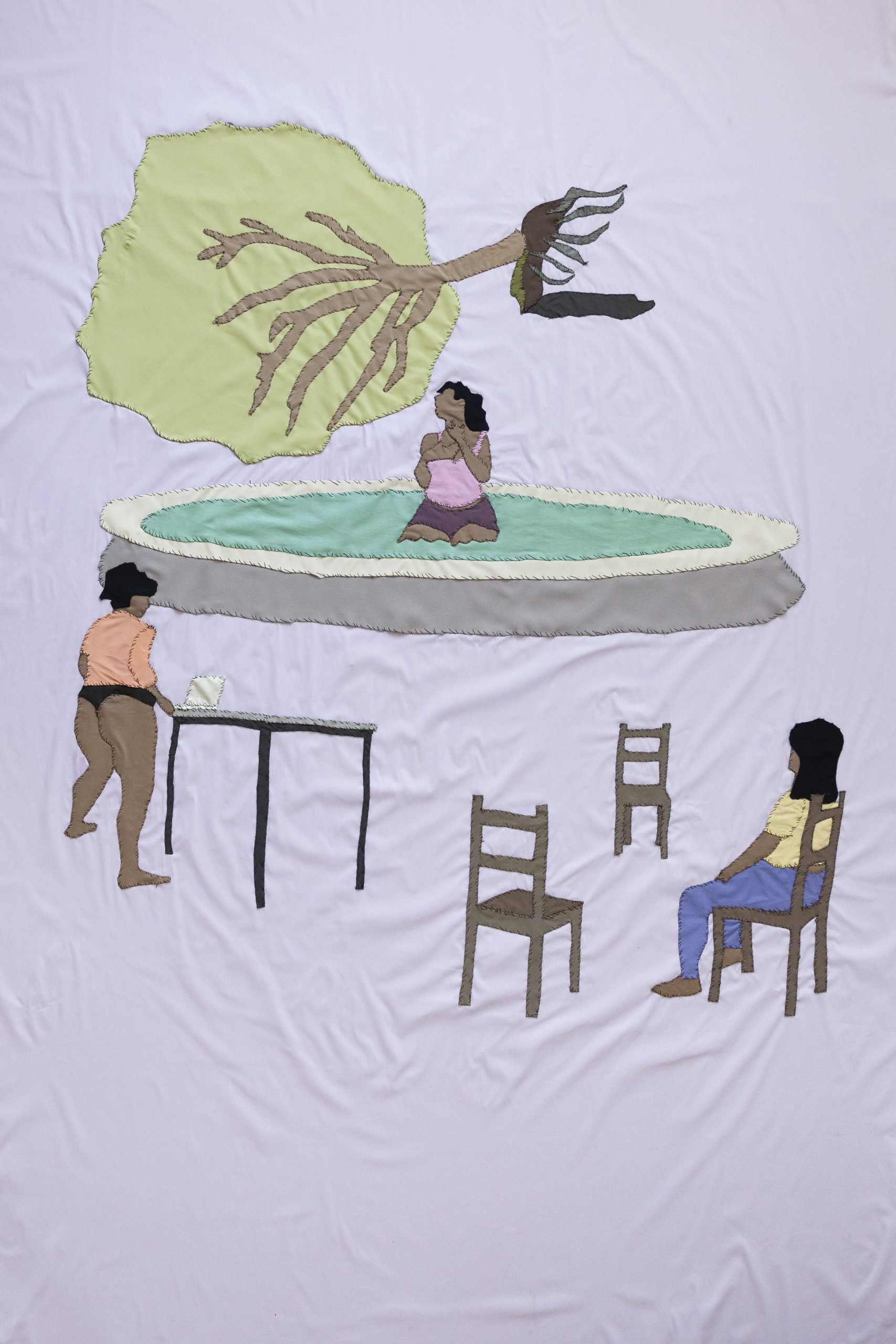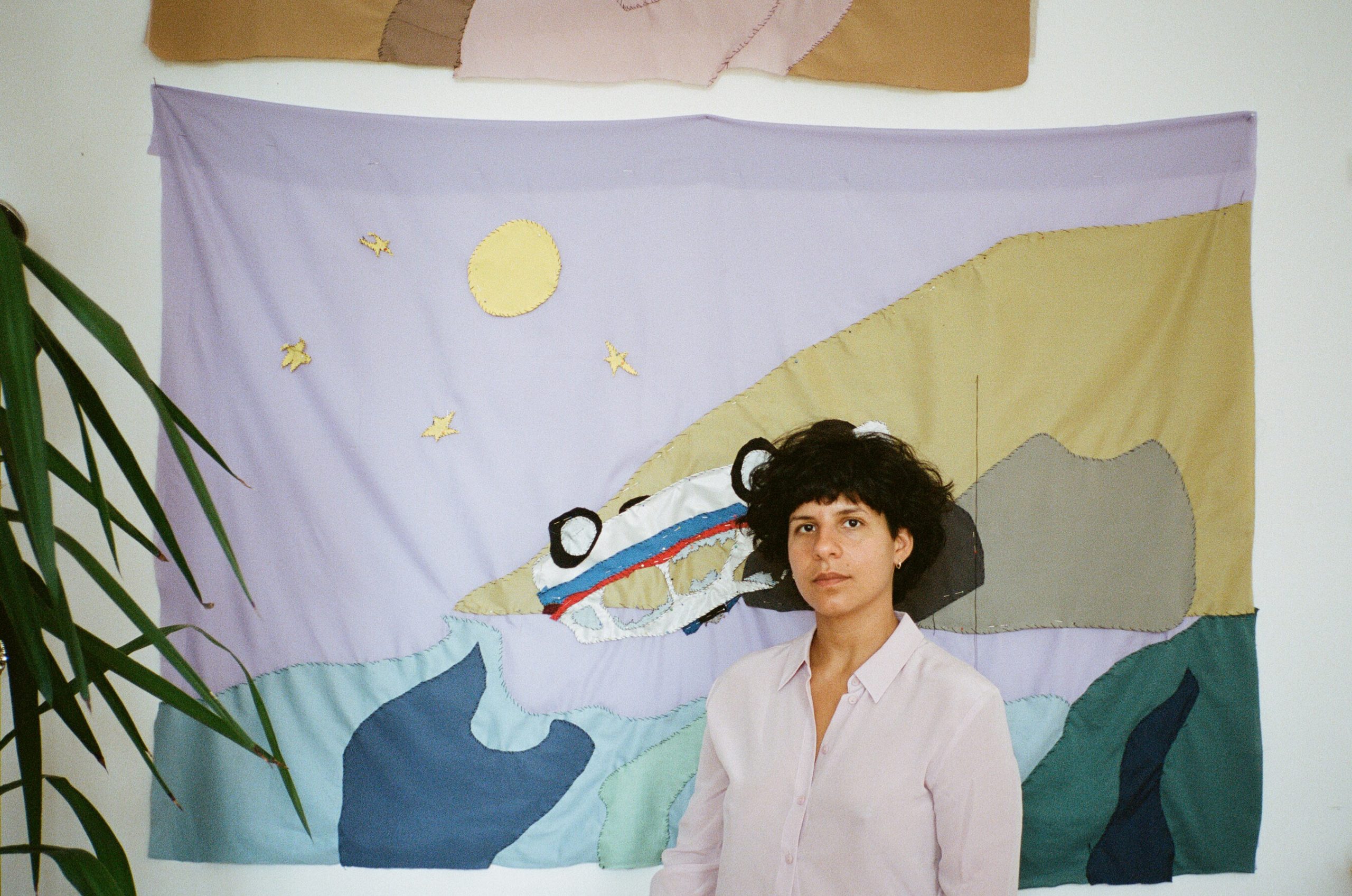
Features #2 — December 2021
Sophie Utikal in conversation with Nicolas Vamvouklis
Sophie, it was great meeting you last summer in San Marino, where you participated in the Mediterranea 19 Young Artists Biennale. Could you tell us a bit about your experience from the “School of Waters”?
I visited “School of Waters” after spending half a year in Berlin lockdown, so being able to connect with new people felt like coming out of my sad cave of isolation and reconnecting with life again. I remember the last night how the listening session of Michele Seffino turned into this spontaneous open-air dance event where we collectively DJed for several hours on somebody’s laptop and danced under the stars. Nobody cared about the music; everyone was just so happy to be together again, dancing and listening to music on loudspeakers.
“School of Waters” was also energising and motivating for me on a professional level. This was my first participation in a Biennale, and being around so many successful artists was new for me. I had studied at the art academy in Vienna and was mostly surrounded by very critical artists who had a lot of blockades due to personal and/or structural reasons. So it felt very alleviating to meet a new community of artists who enjoyed showing and expressing themselves. It gave me a new perspective of where I want to go with my art as a profession.
I am still in touch with a few artists I met during those days; I held a workshop with Enrico Floriddia a few months later at Kunsthalle Wien and Angeliki Tzortzakaki passed by my birthday a few weeks ago in Berlin.
I would like to know more about your background and how it manifests through your figurative textile storytelling.
I come from a Colombian family where it is very common to have small tapestries at home as decoration. These small tapestries are usually handmade and depict scenes from everyday life: trees, cars, the food market. They are called arpilleras, and I have always been fascinated with them; they have something very soft and joyful. In the 80s, this technique was also adapted by Chilean women who came together to sew about the atrocities of the Pinochet dictatorship. Some of these works are in the collection of the Museo de la Solidaridad Salvador Allende. When I saw these works, I was convinced by the potential of the figurative textiles: simple yet powerful and also accessible. Accessible in the means of production but also the perception of the works. These are qualities I appreciate as a method. I am also very into the material itself. The fabric reminds me of skin, and the stitches are similar to the stitches during an operation. I love the many layers this medium has of stitching together fragments into a new body, a new world.
You have selected a very traditional way to stitch together fragmented stories that embrace differences. How do you imagine the evolution of this process? Are you experimenting with other techniques as well?
I want to experiment more with different materials such as leather, varnish, mesh, etc. In my current series, I am playing with the dimensions, going much bigger or splitting and connecting the images again with strings. Making it more sculptural.
Another thread I have in mind is going into scenography. I love the potential of performance, theatre, and concerts and would love to work in this field. I already tried it once last year with a performance piece by Claire Lefèvre for Kampnagel in Hamburg, and I know there is still more waiting for me here.
I think I am ready to open my practice up for collaboration in general. I still want to stay with textile as a medium but want to see what happens when I work together with another artist or a collective.
In previous conversations, you have often mentioned the word ‘soft’ to describe diverse aspects of your process, from the colour palette to the exhibition environment or even the communication between collaborators. What does this quality mean to you?
I think softness means no aggression, no force, no violence. Of course, there are situations in life where these are important and necessary qualities to survive, but in my everyday life, I feel like kindness and softness are essential islands for me to rest and recharge my faith that this world is a good place to be. I also like the idea of weaponising softness. Sometimes softness is the smartest method for staying safe in a dangerous space. Being a woman, I have often intentionally let things slide with men in order to deescalate and to get out of the situation physically unharmed.
You have made an inspiring series of textile pieces called “Quarantine”. My favourite is “Can’t Touch This” (2020). How has the pandemic influenced and is still informing your practice?
The pandemic locked me inside with my fabrics and made me create so many works like never before. I started to produce for myself and my home or my friend’s houses, which made my works become smaller, quicker, and more decorative/beautiful. I was recently wondering if the quality and depth of my work has decreased with this immediate production and decided to give my images and feelings more time to develop before realising them. But in general, I would say the pandemic made me a lot more productive and determined to be a textile artist because it was one of the few things that kept me sane during these times.
Of course, I am speaking here from an exceptional place. Since I have a lot of financial security from my previous career, I did not have to worry about losing my existence or going into debt to survive.
What are you currently working on? Are there any new exhibitions coming up soon?
I am now producing my upcoming solo exhibition in Vienna, opening on the 27th of January 2022. I want to develop further a work I did in 2020 called “Sterile Soil, Poison Sky” which was about a group of five women sitting together in a circle of stones having a conversation with each other. Above them is a red sky with black clouds, and also the ground is dark red. In this textile piece, they are very calm and relaxed amidst this apocalyptic environment. In my next series, I will re-visit these five women and portray them individually as they relate to their dysfunctional, ending world. Is there still hope after humanity has destroyed everything except the stones?
I am also participating in a group show in Münster called “Imagining Society without Growth.” I present my series “Coexisting (Join, Connect, Relate, Multiply)” from 2017, which also goes in a similar direction. It is about a group of futuristic creatures returning to earth to fertilize it with their bodies and create new life here.
I love to use my art practice to time travel, envision new futures, and imagine new narratives about how to be together without dominating or destroying other forms of life.






















